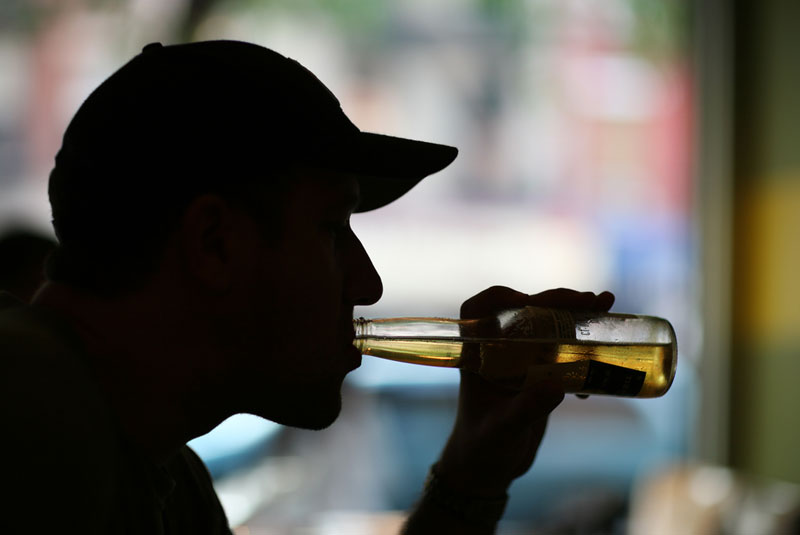Recession Fuels Risky Drinking for Both Jobless and Employed

Get the world’s most fascinating discoveries delivered straight to your inbox.
You are now subscribed
Your newsletter sign-up was successful
Want to add more newsletters?

Delivered Daily
Daily Newsletter
Sign up for the latest discoveries, groundbreaking research and fascinating breakthroughs that impact you and the wider world direct to your inbox.

Once a week
Life's Little Mysteries
Feed your curiosity with an exclusive mystery every week, solved with science and delivered direct to your inbox before it's seen anywhere else.

Once a week
How It Works
Sign up to our free science & technology newsletter for your weekly fix of fascinating articles, quick quizzes, amazing images, and more

Delivered daily
Space.com Newsletter
Breaking space news, the latest updates on rocket launches, skywatching events and more!

Once a month
Watch This Space
Sign up to our monthly entertainment newsletter to keep up with all our coverage of the latest sci-fi and space movies, tv shows, games and books.

Once a week
Night Sky This Week
Discover this week's must-see night sky events, moon phases, and stunning astrophotos. Sign up for our skywatching newsletter and explore the universe with us!
Join the club
Get full access to premium articles, exclusive features and a growing list of member rewards.
People drink more during an economic downturn, suggests a new study showing that binge drinking, drunk driving and alcohol dependence increase when times are tough.
The researchers also found that as unemployment rates rise, risky and excessive drinking behaviors also increase among those who still had a job.
The study's findings come as a surprise, the researchers say, because previous research has shown that a declining economy and the resulting layoffs and job loss lead to a decrease in excessive drinking behavior as consumers have less money to spend on alcohol. In the new study, researchers looked at a set of measures on alcohol consumption, such as alcohol abuse and dependence, which were not examined in the previous studies.
"We are one of the first to show that, even though incomes decline for most people during an economic downtown, they still increase problematic or risky drinking," study researcher Michael T. French, a health economist and director of the Health Economics Research Group at the University of Miami, said in a statement.
The researchers analyzed data from two waves of the National Epidemiologic Survey on Alcohol and Related Conditions (NESARC), which were collected from 2001 to 2005. The surveys consisted of 34,120 individuals, selected as a representative sample of the U.S. population, who answered questions regarding their alcohol consumption.
Results showed that as state-level unemployment rates rose, instances of binge drinking also increased. The study considered binge drinking, as defined by the National Institute on Alcohol Abuse and Alcoholism, to be drinking about four drinks for men or three drinks for women in approximately two hours.
During an economic downturn, drunk driving, alcohol abuse and alcohol dependence also increased for both men and women, as well as across all of the ethnic groups surveyed, which included individuals of Native American, Asian and Hispanic descent. Blacks and those between the ages of 18 and 24 displayed the largest binge-drinking effect as a consequence of the low unemployment rate, the study showed.
Get the world’s most fascinating discoveries delivered straight to your inbox.
Whites and middle-age adults, who were identified as those between the ages of 25 and 59, displayed the largest drunk-driving effect, or drunk driving as a direct reaction to unemployment rates, according to the study, which was recently published in the journal Health Economics.
Even individuals who were employed had more binge-drinking days and were more likely to drive drunk during an economic downturn.
"The way we explain this, is even though employed individuals have a job, they could be affected psychologically (e.g., fear of losing their job) from an economic downturn, leading them to have more drinking days and driving under the influence episodes as the state-level unemployment rate increases," French said.
The researchers note that the findings are especially timely and relevant because many economists predict that the U.S. unemployment rate will remain above pre-crisis levels for the next few years.
You can follow LiveScience writer Remy Melina on Twitter @remymelina. Follow LiveScience for the latest in science news and discoveries on Twitter @livescience and on Facebook.
 Live Science Plus
Live Science Plus





